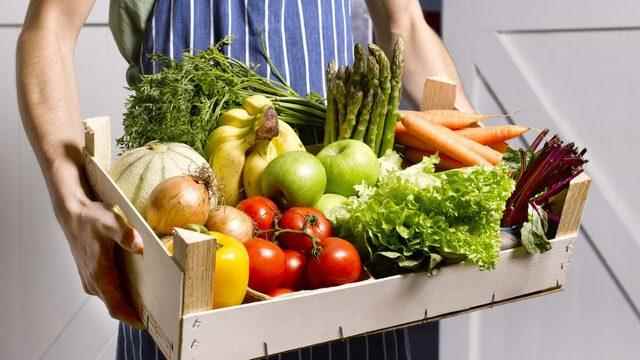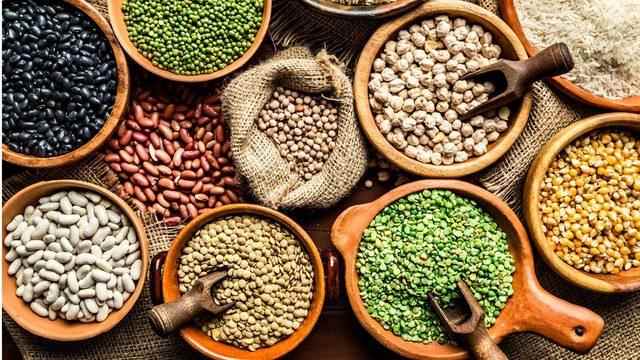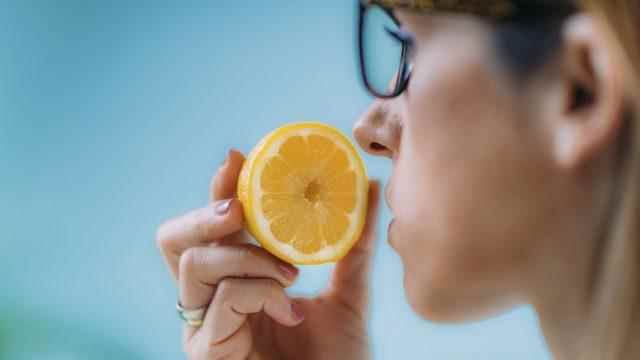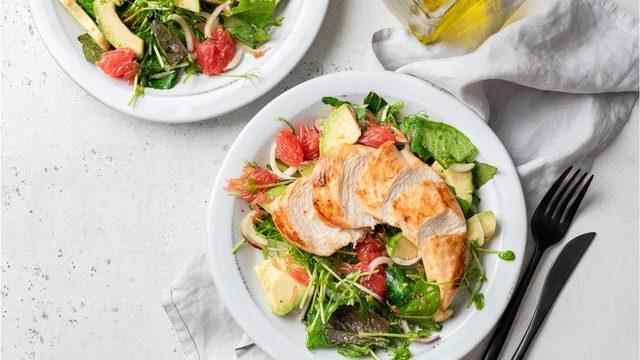Nutritionists say food and drink play an important role in the recovery of Covid-19 patients.
In Covid, as in other infections, the body needs more energy and fluid than normal, and extra protein for the repair of cells and tissues.
How does food contribute to recovery?
The immune system is made up of organs, cells, and chemicals that fight infection in various ways. White blood cells, antibodies and other mechanisms in the blood are set to destroy harmful microorganisms (pathogens) that have entered the body and repair damaged cells and tissues.
Proteins and their constituent amino acids are of great importance in this regard. During infection, the immune system pulls the proteins in the muscles to break them down into amino acids and convert them into new proteins.
Professor Philip Calder, who studies nutrition-related immunity in medicine at the University of Southampton in England, says that weight loss and weakening of muscles while sick are due to this.
“The healing process requires protein. They provide the basic building blocks for the body to function…especially for those who are bedridden,” Calder says.
The body needs more energy because it works harder than normal. “It takes a lot of energy when the immune system is actively dealing with pathogens. The immune system’s response involves a lot of repair,” he continues.
Even in the absence of appetite due to illness, consuming foods containing high carbohydrates such as oats, bread, pasta, full-fat yogurt containing energy-dense and abundant protein, eggs and nuts such as almonds, hazelnuts and walnuts help the healing process.
Vitamins, minerals and fatty acids
It is also important to get enough vitamins and minerals during the illness and recovery process.
prof. “They’re like factory workers; they do everything and they’re really important,” says Clader.
Vitamins and minerals that support the immune system include:
- Vitamins: A, C, D, E, B6, B9 (folic acid), B12
- Minerals: zinc, copper, selenium and iron
These micronutrients are found in many fruits and vegetables, as well as meat, eggs, and dairy products. It is stated that against the risk of vitamin D deficiency in people who do not see enough sun, vegans can take vitamin B12, which is only found in animal products, in the form of supplements.
The healthy fats found in olive oil, rapeseed (canola) oil and oily fish are also necessary for energy and new cell formation. Omega 3 oils and essential (essential) fatty acids are fats that the body cannot produce enough on its own, must be taken through diet, and are beneficial for the immune system. Sardines, salmon and mackerel are the main sources of Omega 3. In case of eating difficulties while sick, vitamin supplements enriched with omega 3 can be taken.
There is not a single vitamin or mineral that miraculously accelerates the healing process; The role played by each of them is different.

Nutrition during recovery from Covid
prof. According to Calder, the plant-based Mediterranean diet is the ideal type of nutrition during the recovery period from Covid. It contains all the nutrients that the body needs against the effects of infection. “Plenty of fruits, vegetables, forest nut, nuts, legumes, oily fish, and healthy fats like olive oil are ideal.”
Meat is a good source of protein; but legumes such as quinoa, lentils, dried beans, peas, and nuts such as almonds, walnuts and hazelnuts also contain very good vegetable protein and essential amino acids.
prof. Calder states that such diverse and fibrous foods are effective for the presence of good bacteria and a healthy membrane in the intestines, which plays an important role in regulating the immune system.
He points out that if there is a problem of eating less or not eating at all for a certain period, it is necessary to consume food little by little in order not to tire the intestines.
“Soft foods are easier on the gut. As patients start to eat more, the gut can be restored within a few days.”
According to the advice of the UK’s National Health Service, if you are not too thin and have not lost much weight during the illness, it would be beneficial to include the following foods in your daily diet to speed up the recovery from Covid-19.
- Protein: A total of three handfuls of meat, fish, eggs, legumes, nuts and meat alternative soy products (more legumes, less meat and processed meat products)
- Fruit and vegetable: Fresh, frozen or canned fruits and vegetables in 5×80 gram portions (with a pinch) and, if possible, in many colors
Dairy products and alternatives: A total of three thumbs up milk, cheese, yogurt, or protein-rich and calcium-fortified alternatives (soy products)
- How can we protect ourselves from the coronavirus as winter approaches?

How to deal with fatigue?
If there has been loss of appetite, fatigue and weakness during the disease process, it may be difficult to buy, cook and eat the optimum foods that will accelerate the healing process.
According to dietitian Kirsten Jackson, keeping weight loss to a minimum, replenishing energy and building muscle strength should be a priority in this situation.
Cocoa hot milk and fruit and milk drinks can help replenish the fluid and energy the body needs in a short time. “For those with appetite problems, it’s often easier to get calories from drinks rather than meals.”
Jackson states that some of the drinks sold in the market are diet drinks and says that drinks rich in calories, vitamins and protein should be preferred.
In this process, instead of preparing three heavy meals a day, it may be easier to eat less but often. Dietitians also say that three meals in small portions and healthy snacks and drinks in between can be preferred until recovery.

Loss of smell and taste
Half of Covid-19 patients temporarily lose their sense of smell and taste. In most of these, this situation returns to normal in two to three weeks, while in 10 percent of patients it can take months.
Experts point to the appetite-reducing effect of loss of smell and taste. For this reason, crispy foods of different colors and temperatures that will stimulate other senses can be effective.
Sarah Oakley from Abscent, a charity that works for people who have lost their sense of smell in England, says that by smelling the same scent twice a day in a concentrated way, you can contribute to the process of re-scenting the nose. Calling this “physical therapy” for the nose, Oakley states that nerve cells in the nose are damaged and scent therapy contributes to the healing process.
Disordered and unpleasant tastes and odors (parosmia) are also common in this process. This makes it even more difficult to eat. Although it varies from person to person, foods such as coffee, garlic, onions, bread and fried meat can often be triggers.
Oakley emphasizes that it is important to keep the energy level high rather than a balanced diet in the early stages of this process. “You can start with vegetables and fruits as they progress,” she says.
Drawing attention to the importance of nutrition in the recovery process from Covid, Prof. “The better your diet, the faster you recover,” says Calder.
